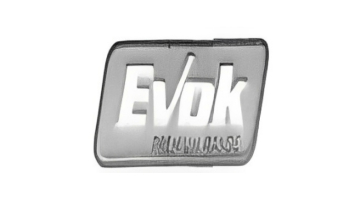The ISI Mark is a certification mark issued by the Bureau of Indian Standards (BIS) that indicates a product complies with Indian safety, quality, and performance standards. Products that carry the ISI mark assure customers that they are reliable, durable, and safe for use.
Assisted 500+ successful ISI registrations Free consultation with compliance experts Lowest service charges – guaranteed Fast & hassle-free process Guidance for Import–Export compliance 20+ years of expertise, serving 1,100+ companies Obtaining ISI registration involves product testing, factory inspection, and manufacturing process evaluation. Only after these checks does BIS issue the ISI certification, authorizing manufacturers to affix the ISI mark on their products. The mark is a symbol of credibility and trust, helping businesses establish market presence while protecting consumers from unsafe or poor-quality products. Consumer Safety – Ensures that products are safe, tested, and risk-free. Market Acceptance – Mandatory for several product categories before sale in India. Legal Compliance – Avoids fines, rejections, or legal penalties. Quality Assurance – Demonstrates adherence to Indian Standards and consistent manufacturing quality. Competitive Advantage – Builds brand reputation and increases consumer preference. Consumer Confidence – Shoppers prefer ISI-marked products as they guarantee safety and quality. Brand Value – Certified companies enjoy greater credibility and trust. Market Growth – ISI certification is mandatory for several goods, opening wider sales opportunities. Reduced Risks – Helps manufacturers avoid product recalls, penalties, or loss of reputation. Obtaining ISI certification can be complex. A professional ISI Mark Consultant can: The stepwise process for ISI Mark Registration is as follows: Application Submission – The manufacturer submits an application to BIS with product and factory details. Factory Inspection – BIS officials inspect the manufacturing unit for quality control systems and compliance. Product Testing – Samples are tested in BIS-recognized laboratories to verify safety and performance. Approval & License – After successful inspection and testing, BIS issues a license to use the ISI mark. Surveillance & Renewal – BIS conducts periodic inspections and testing to ensure continuous compliance. Renewal is required to maintain certification validity. These mandatory certifications are enforced through Quality Control Orders (QCOs) issued under the BIS Act, 2016. Certain product categories (such as electrical appliances, cement, steel products, food items, and household goods) must have ISI certification before being sold in India. The government mandates this under Quality Control Orders (QCOs) to safeguard consumers and prevent unfair trade practices. The ISI Mark Certification is more than a regulatory requirement – it is a commitment to safety, quality, and consumer trust. By obtaining ISI registration, manufacturers can enhance credibility, strengthen brand reputation, and expand their presence in the Indian market. Hiring an expert ISI Consultant ensures a smooth certification journey – from documentation and testing to audits and renewals. With ISI registration, you don’t just comply with Indian standards – you earn consumer trust and unlock business growth. ISI Mark Registration | Process | Documents | Fees
Get Certified with ISI Mark – Build Trust & Ensure Compliance
Get connect with us
What is ISI Mark Registration?
Why ISI Certification is Important
Key Benefits of ISI Certification
Role of ISI Mark Consultants
ISI Certification Process
Mandatory ISI Certification
Conclusion
Our Partners




















